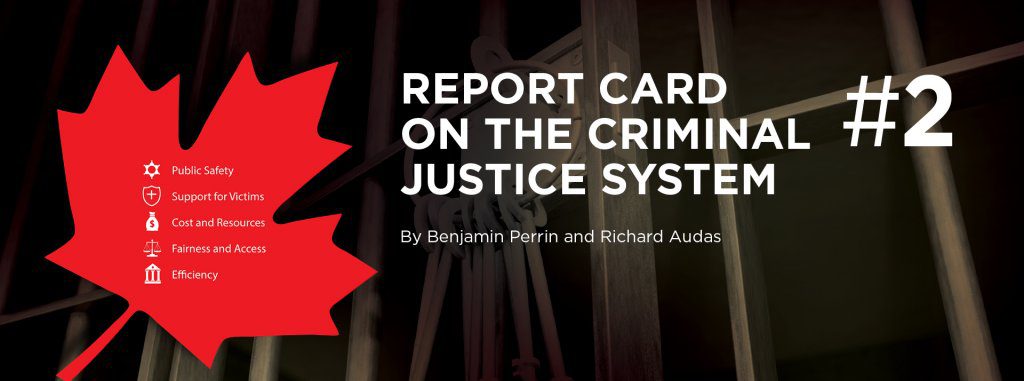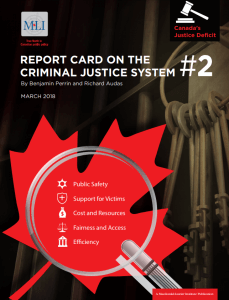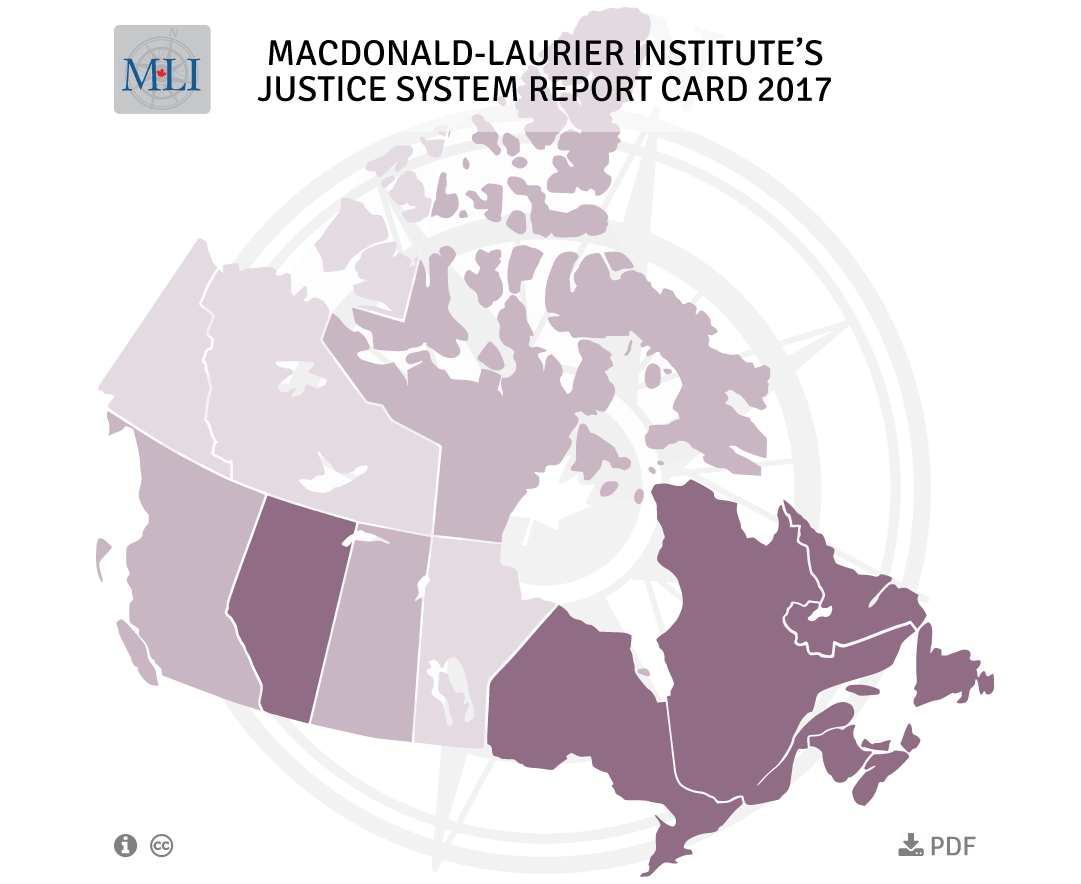Tori Stafford’s Killer and the Case for Corrections Reform
Tori Stafford was eight years old in April 2009 when, while walking home from school, she was lured into a...

The large and growing gap between the aspirations of Canada’s justice system and its actual performance requires a regular report card on Canada’s justice system. Canadians should have a system that protects the safety, lives and property of Canadians by promptly and thoroughly investigating crimes while enforcing the rights of victims. For that reason, MLI undertakes a Justice Report Card that reviews the criminal justice system across Canada.
 The justice system in Canada, including both civil and criminal matters, is massive both in terms of the number of people actively involved in it, the cost associated with running it, and in terms of its importance in ensuring that Canada is a free and safe society where the rule of law is respected and disputes can be resolved efficiently and fairly. Yet, the system is opaque and largely unaccountable.
The justice report card project was first launched in 2016 – first with a paper making the case on the”justice deficit” and the need for a report card, then with the first report card itself. The second report card was released in March 2018, and has generated extensive media attention in numerous provinces and territories across Canada.
In addition to updating provincial grades, the second Justice Report Card examines nationwide statistics to explain how Canada is doing as a whole. The assessment of each province and territory’s criminal justice system is based on five major objectives: public safety, support for victims, costs and resources, fairness and access to justice, and efficiency.
As part of the second report card, we have an interactive Canada-wide map detailing the latest criminal justice system grades for each province and territory.
The justice system in Canada, including both civil and criminal matters, is massive both in terms of the number of people actively involved in it, the cost associated with running it, and in terms of its importance in ensuring that Canada is a free and safe society where the rule of law is respected and disputes can be resolved efficiently and fairly. Yet, the system is opaque and largely unaccountable.
The justice report card project was first launched in 2016 – first with a paper making the case on the”justice deficit” and the need for a report card, then with the first report card itself. The second report card was released in March 2018, and has generated extensive media attention in numerous provinces and territories across Canada.
In addition to updating provincial grades, the second Justice Report Card examines nationwide statistics to explain how Canada is doing as a whole. The assessment of each province and territory’s criminal justice system is based on five major objectives: public safety, support for victims, costs and resources, fairness and access to justice, and efficiency.
As part of the second report card, we have an interactive Canada-wide map detailing the latest criminal justice system grades for each province and territory.


Tori Stafford was eight years old in April 2009 when, while walking home from school, she was lured into a...
Click here to view MLI's interactive Canada-wide map, detailing the latest criminal justice system grades for each province and territory....
Companion piece to MLI’s justice system report card examines national statistics, finds Canada’s system fails to measure up OTTAWA, Sept....
MLI offers the first-ever comprehensive assessment of Canada’s criminal justice system OTTAWA, Sept. 21, 2016 – Canada is suffering from...
New MLI paper makes the case for a justice system report card for Canada OTTAWA, May 5, 2016 – The...
|
|
Thank you for Signing Up |

323 Chapel Street, Suite #300
Ottawa, Ontario, K1N 7Z2 Canada
613.482.8327
Support the Macdonald-Laurier Institute to help ensure that Canada is one of the best governed countries in the world. Click below to learn more or become a sponsor.
© 2023 Macdonald-Laurier Institute. All Rights reserved.
Add this ID to the plugin's Hide Specific Tweets setting: